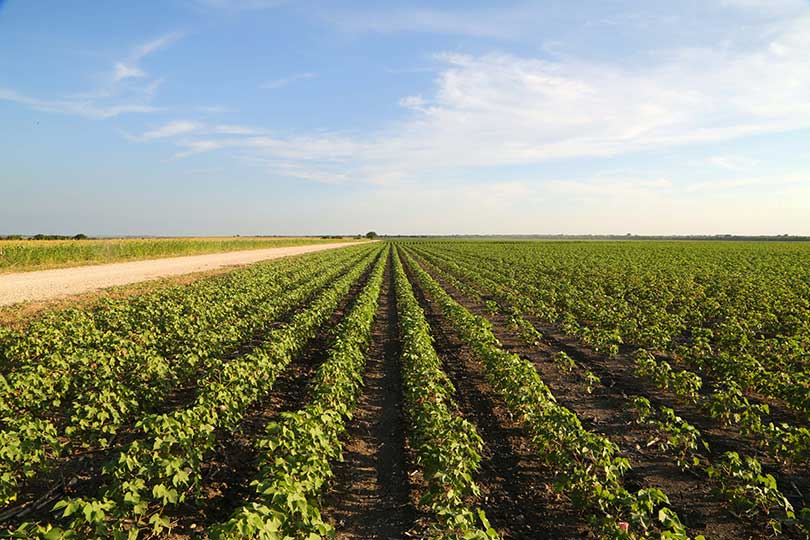The 2016 U.S. cotton crop produced high yields and high quality fiber, triggering a spike in export demand and higher market prices, according to a Texas A&M AgriLife Extension Service economist.
“No question, we had high quality cotton produced in 2016 that was widespread across the board,” Dr. John Robinson, AgriLife Extension cotton market economist in College Station, told AgriLife Today. “We had high yields, which resulted in more quality cotton to market. That put us in the cat bird’s seat.”
Robinson said the demand relationship has shifted “outward” since August, meaning more cotton has been flowing out to the export markets due to political unrest and India losing some of its market share.
Cotton prices have reached the upper 70s in recent weeks.
“Some of our export competitors had problems whether it be political policy or India losing export market share and we picked up the slack,” Robinson said. “We were shipping more as a result of India policy issue. That’s all great and does mostly explain the strengthening in old crop futures. I don’t know if those will carry over into next year.”
Fashion trends, such as fitness wear, has shifted demand from cotton to synthetic materials, holding back demand for cotton.
“Instead of cotton expanding beyond population growth, it’s been limited by that fashion trend,” Robinson said.
But trends tend to fade over time and consumer preferences may switch back to cotton.
Robinson said it’s hard to predict whether U.S. cotton farmers will produce another year of top quality cotton.
“Weather is hard to predict,” Robinson said. “I’m advising producers to be careful, since this strong demand may not be there and prices may not be as strong. You might want to do something with high prices now because they may not last. And you’ve got to factor in that we’ve got a huge crop coming potentially with the additional acres that were planted.”
Robinson said the cotton crop conditions in Texas appear to be favorable heading into the summer growing season.
“So far, we are good in terms of moisture,” Robinson said. “Most of Texas is showing adequate soil moisture. We are off to a good start. I saw a report that indicated a 50-50 chance for an El Niño event that could start as early as August.”
Robinson noted that those August rains can make a big difference.
“We could see future prices at 60 cents [per pound] or lower by harvest time,” Robinson said.

